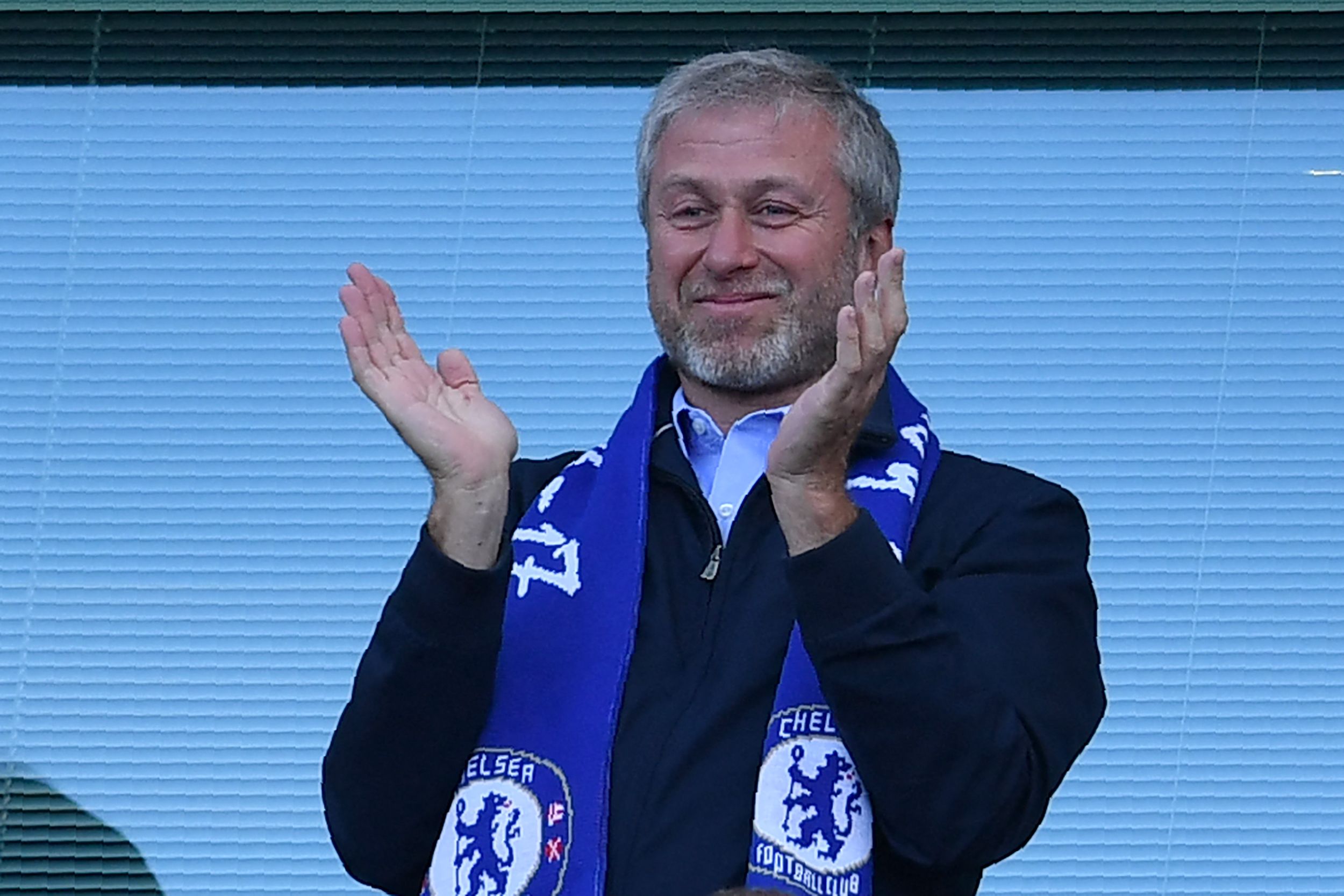Football: What the sanctioning of Russian owner Roman Abramovich means for Chelsea
Sign up now: Get the biggest sports news in your inbox

Roman Abramovich was one of seven more oligarchs slapped with restrictions following Russia's invasion of Ukraine.
PHOTO: AFP
LONDON (REUTERS, AFP, BLOOMBERG, NYTIMES) - European football champions Chelsea are now effectively controlled by the British government after sanctions were imposed against Russian owner Roman Abramovich.
He was one of seven more oligarchs slapped with new British restrictions following Russia's invasion of Ukraine and the assets of the Russian billionaire, who is said to be close to Russian President Vladimir Putin, have been frozen.
But what does this mean for the Blues?
1. Club sale on hold
The freezing of Abramovich's assets makes it impossible - at least in the short term - for him to follow through on his announced plans to sell Chelsea, ranked by Forbes as the seventh most valuable in world football at US$3.2 billion (S$4.35 billion).
Under the new arrangement, the British government will have oversight of that process. And while it said it would not necessarily block a sale, the effect would be to heavily diminish any proposed sale price, and the proceeds "could not go to the sanctioned individual while he is subject to sanctions" - leaving Abramovich little incentive to move forward.
Potential buyers will now have to wait to see whether a licence allowing a sale is granted and how any legal potential action from Abramovich proceeds.
A host of names had revealed their interest or have been linked to a bid for the club despite many believing Abramovich's reported £3 billion (S$5.34 billion) asking price was unrealistic.
They included Apollo Global Management Inc. co-founder Josh Harris and UK property developer Nick Candy.
Swiss billionaire Hansjoerg Wyss, who had publicly expressed interest in purchasing Chelsea along with LA Dodgers co-owner Todd Boehly, told Swiss newspaper Blick that he remained interested in a deal.
2. Sponsors flee
Several sponsors have cut or are considering ending their ties to the Blues.
They include mobile phone company Three, owned by Li Ka-Shing's holding company, which pays about £40 million a year for the right to have its logo displayed on the players' jerseys.
Hyundai Motor Co. is assessing its partnership with the club.
The biggest sponsor, Nike, which signed a 15-year deal worth £900 million in 2016, has yet to comment on the issue. It has, however, already hit the pause button on sales in Russia.
Other Chelsea sponsors include Trivago and Vitality Health.
"Given the rate at which many brands are looking to dissociate themselves from the Russian state, some may be wary of continuing partnerships," said Conrad Wiacek, head of sport analysis at GlobalData.
The club generated sponsorship income of £155 million in its latest financial year and Chelsea's sponsorship contracts brought in more than one third of last season's revenues, according to figures published at London's Companies House.
3. Limited to selling burgers & beer
The British government has issued Chelsea a licence allowing it to continue its football-related activities. The licence would be under "constant review".
It will ensure that the team's players and staff will continue to be paid but it is unclear who will hand over the millions needed to keep some of the world's best-paid players on the pitch. Striker Romelu Lukaku, for example, is on a weekly salary of £325,000.
The sanctions will put a stranglehold on Chelsea's spending and seriously undermine its ability to operate at the levels it has for the past two decades.
The club cannot spend more than £20,000 on getting its players, coaches and officials to away trips, which could cause issues for away matches in the Champions League, with Chelsea set to travel to French club Lille next week.
It also cannot sell merchandise from its Stamford Bridge stadium.
The money due to the club from highly lucrative television contracts for the Premier League and Champions League can be paid to Chelsea. However, that cash is to be frozen, raising the question of how the club will continue to meet its payroll demands in the coming months. Winnings the club receives will also be frozen immediately.
With revenue last year totalling £437 million, Chelsea is largely limited to selling burgers and beers at its stadium to fill the coffers.
And that is a major worry given Chelsea costs about £500 million to run each season, according to company accounts.
In the year to June 2021, the club made a loss of £155.9 million, driven in part by the lack of fans due to the Covid-19 pandemic but also due to a £309 million wage bill even before the club-record signing of Lukaku for £97 million in August.
"The concern might be what happens if Chelsea's cash reserves are insufficient to pay their wage bill," football finance expert Kieran Maguire told the BBC.
4. What about fans?
While season tickets will remain valid, any new sales from March 10 are prohibited, including to away matches and, crucially, any future Champions League games should the team advance to the later rounds of the competition.
Chelsea, which faces playing in front of a near empty Stamford Bridge stadium if the team makes it through to the next round of the Champions League, plans to challenge that. It would be "seeking permission for the licence to be amended in order to allow the club to operate as normally as possible," it said a statement on its website.
5. Player exodus?
Player transfers are banned, as are new contracts.
A number of key players in Chelsea's squad, such as captain Cesar Azpilicueta and key defender Antonio Rudiger, are in the last few months of their deals, after which time they become free agents and can move elsewhere without Chelsea being able to sell them for a fee.


